Monthly Archives: June 2015
Jon Rowe points to Eugene Volokh talking about whether we are a republic or a democracy:
Tom Van Dyke beat me to a lot of this in the comment section of Row’s post, but no reason not to slap my own words on our similar views of the subject. Different words mean different things to different people, but for me, at least, “We’re a republic and not a democracy” is a phrase that does have meaning, even if it doesn’t track 100% with the words themselves.To be sure, in addition to being a representative democracy, the United States is also a constitutional democracy, in which courts restrain in some measure the democratic will. And the United States is therefore also a constitutional republic. Indeed, the United States might be labeled a constitutional federal representative democracy. But where one word is used, with all the oversimplification that this necessary entails, “democracy” and “republic” both work. Indeed, since direct democracy — again, a government in which all or most laws are made by direct popular vote — would be impractical given the number and complexity of laws that pretty much any state or national government is expected to enact, it’s unsurprising that the qualifier “representative” would often be omitted. Practically speaking, representative democracy is the only democracy that’s around at any state or national level.
Specifically, it is an acknowledgement that democracy is intentionally limited here and there. Least controversially, by refusing to allow the majority to abridge the rights of the minority (though how we define abridged rights is subject to debate). And, as TVD mentions, we have purposefully disproportionate representation in one of our two houses, as well as in our presidential selection process.
People who say that there is no distinction between republic and democracy in the US, or that the US is both, are not necessarily wrong. They are, however, often using that as a springboard to point out the ways in which we’re “failing” to be democratic, be it through the existence of the Senate, the filibuster, the constraints on the government of the Constitution, or single-member districts. Irrespective of the merits of these anti-democratic or non-democratic mechanisms (I agree with some of the criticisms, and disagree with others), there is something circular about simultaneously saying that our system is democratic and then turning around and arguing that our system – even as intentionally designed – is failing at being democratic.
There are specific cases where our system wasn’t designed to be how it worked out. The Electoral College, for example, had one thing in mind and became something else. Single-member districts were intended, but gerrymandering wasn’t. The Filibuster as it currently exists is a later invention, though one agreed upon by the members elected in proportion to how it was designed (although elected directly now).
I have found it easier to sidestep the “a republic is a democracy” argument by adding a qualifier to “republic.” We are a constitutional republic. We are a federal republic. We are not, and never have been, and were never intended to be, a directly democratic republic. The idea of a straight (and sole) population-based legislative body was raised, and was rejected. And the “federal republic” part was absolutely intended, and is not (contrary to the perceptions of some) an anachronistic example of American exceptionalism. We are one of many federal republics throughout the world, and nowhere near alone in having disproportionate representation.
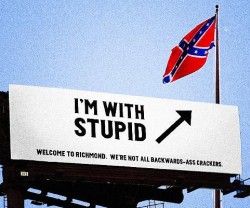 Andy Pascal went to his summer house in Romania and discovered it had been replaced by a cornfield. More on the history of house theft.
Andy Pascal went to his summer house in Romania and discovered it had been replaced by a cornfield. More on the history of house theft.
ThinkProgress has a good story on an Imam talking kids out of joining ISIS.
Ricardo Hausmann argue that the relationship between education and economic progress is more mixed than we think.
North Dakota is welcoming Uber with open arms, and would frankly welcome some poop.
Jonathan Manthorpe explains how foreign investment in has changed Vancouver, hitching the fate of the city to the fate of China.
There’s not much particularly novel in this Glenn Reynolds piece on the cost of higher education, but I hadn’t heard this statistic before: Cal Poly in Pamona has one administrator for every two students.
Sonny Bunch applauds Mike Judge for keeping the liberal agenda out of his work.
So happens when a Jihadi returns home?
Housing in some suburbs are being consolidated, swallowing up multiple more modest homes to make room for mansions. One of the reasons that inequality is more felt in urban and land-scarce areas than elsewhere. {More}
A website is creating a blacklist of Pro-Palestinian activists.
Foreign investment in France is seeing record-highs, but employment law and costs may be holding back employment.
Black solar cells are pretty cool, for both aesthetic and technical reasons, and they’re advancing.
There seems to be a pattern in some of Blue America of testing the boundaries of liberal economic philosophy. In Connecticut, for example, they are testing the theory that states can ramp up taxation as much as they want and the anchor businesses will never leave. If they follow through, and GE and Aetna and others don’t leave, that will demonstrate that being “unfriendly to business” doesn’t actually account for much and corporations will house themselves mostly wherever they want to.
But nowhere is this being tested more than the minimum wage. Advocates of the minimum wage argue that raising the minimum wage doesn’t adversely affect employment. There is a fair amount of support for the notion that relatively small minimum wages don’t have too much effect. Of course, small minimum wages don’t help workers as much either. What about big minimum wage hikes? SeaTac recently shot theirs up significantly, and Seattle and Los Angeles have recently voted on it.
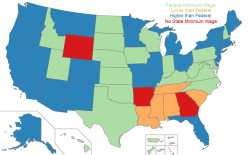 These cities aren’t the best test cases, though, because they’re not typical cities. SeaTac is home to an airport that cannot easily be relocated, and there are businesses around the airport whose business plan involves being right near an airport. Seattle and Los Angeles are among the most expensive cities in the country. So while a success there might inspire San Jose and New York City, they’d tell us less about what, say, Boise should do. Or, for that matter, the State of Washington which includes not just expensive Seattle but less expensive Spokane and a bunch of inexpensive cities in between. Critics are suggesting that the result will be a skyrocketing in rents (and other things) that will ultimately swallow any gains. Which may be true, but that’s a problem that tells us about land-scarce, property-scarce locations and less about whether rents would skyrocket in Boise or Spokane.
These cities aren’t the best test cases, though, because they’re not typical cities. SeaTac is home to an airport that cannot easily be relocated, and there are businesses around the airport whose business plan involves being right near an airport. Seattle and Los Angeles are among the most expensive cities in the country. So while a success there might inspire San Jose and New York City, they’d tell us less about what, say, Boise should do. Or, for that matter, the State of Washington which includes not just expensive Seattle but less expensive Spokane and a bunch of inexpensive cities in between. Critics are suggesting that the result will be a skyrocketing in rents (and other things) that will ultimately swallow any gains. Which may be true, but that’s a problem that tells us about land-scarce, property-scarce locations and less about whether rents would skyrocket in Boise or Spokane.
One of the interesting things about all of this to me is that Seattle is a done deal and Los Angeles almost is, and nobody is hedging. Both sides seem pretty sure that things will work out as they predict and are not – as I think I would be – talking up how these are special cases and while we can learn from it, it won’t be the definitive judgment on what Raising The Minimum Wage means. From my perspective, if things go along swimmingly, I will start being a lot more supportive of what other large cities should consider, and if it backfires, I will think maybe we need to scale back future minimum wage hikes at least in similar environments.
Not as interesting as it will be, it provides little indication to me over what we should do with the national minimum wage, which applies just as much to Toledo as it does Seattle. The national minimum should be a reflection on the needs of the least expensive parts of the country. More expensive states, counties, and cities can ratchet it up locally as needed. And so if it only ratchets in one direction, start low. Concerns of a “race to the bottom” don’t seem to apply as much when it comes to the minimum wage – which tends to be location-specific jobs – than other areas of labor law and regulation that might push a company to settle in Texas instead of Connecticut. (“Or maybe not,” says the Nutmeg State.)
But you know what would change my mind on a national minimum wage, and convince me that perhaps we can be aggressive when it comes up to moving it up nationally? It if were to succeed in a relatively low-cost state or city. Enter St. Louis:
St. Louis could be the next city to raise its minimum wage significantly, if Mayor Francis Slay has his way.
Slay spokeswoman Maggie Crane on Tuesday confirmed that the Democratic mayor wants to raise the city’s minimum. A starting point for discussion is $15 per hour by Jan. 1, 2020, Crane said, but details are still being ironed out.
And Kansas City…
A proposal working its way through the Kansas City Council would raise the minimum wage to $15 an hour within the city by 2021.
On Wednesday, the council’s Planning, Zoning and Economic Development Committee is expected to consider Ordinance No. 150271, a proposal that would raise the minimum wage to $10 an hour by September 2015 and, starting in 2017, gradually increase it to $15 an hour. Councilman Jermaine Reed proposed the “living wage” ordinance.
 Neither of these two cities are bursting at the seems in terms of population or population growth. Fifteen dollars an hour in either of these cities would be absolutely huge. And if it were not to call a wave of unemployment, it would change how I see the minimum wage. I wouldn’t necessarily sign on to a $15/hr national minimum wage, but I’d look at $12 with quite a bit less trepidation and wouldn’t worry so much about the Puerto Rico example. My belief is that raising the minimum wage would not be a good idea for any of these cities. But man, if I’m wrong about that… man.
Neither of these two cities are bursting at the seems in terms of population or population growth. Fifteen dollars an hour in either of these cities would be absolutely huge. And if it were not to call a wave of unemployment, it would change how I see the minimum wage. I wouldn’t necessarily sign on to a $15/hr national minimum wage, but I’d look at $12 with quite a bit less trepidation and wouldn’t worry so much about the Puerto Rico example. My belief is that raising the minimum wage would not be a good idea for any of these cities. But man, if I’m wrong about that… man.
It could be, though, that we’ll not find out. First, it’s not entirely clear that state law allows for it. The St. Louis mayor is preparing his legal argument, but this could be little more than legal grandstanding. And if there is any ambiguity in the state law – and there doesn’t seem to be – the state legislature amended a bill banning the banning of plastic bags to prevent locations from raising the minimum wage. Which the governor may veto, but there is nearly a veto-proof majority.
Which, on the one hand, I think is probably good for Kansas City and St. Louis and by extension good for the state that relies on those two cities as anchors. On the other hand, the ratchet. While I would question the wisdom of raising the minimum wage, it seems to me that it’s the sort of mistake that cities should be allowed to make. In order to allow podunk, Missouri to preserve its more modest minimum wage, other parts of the state should be allowed to raise it. I am not a firm believer in local control over all things, but I do think it applies here where local needs can differ so greatly from one place to the next.
Which is perhaps more valorous than the other reason, which is that it might be helpful to watch St. Louis burn without putting the rest of the country at risk.
One of the great things about having my mother-in-law in town to watch the little one is that it allows me to take care of all the things that become exponentially harder with the little one in tow. This round that meant going to the recycling plant, laundromat to get the sheets washed, getting a hair cut, and going to the DMV and getting my driver’s license replaced.
I accomplished #1 and #2, will accomplish #3 today, and… well number four is its own story. (Not a terribly long one.)
The drivers license disappeared when I had to go from pharmacy to pharmacy in search for some drug that my wife needed last Christmas when she injured her knee. Every place I stopped by needed to see my drivers license (before they would even look to see if they had the drug on hand) since it was a pain med. And so when I discovered a smoking crater where my drivers license is supposed to be in my wallet, I had no idea who had it. I called every pharmacy I talked to and the answers ranged from “Let me check the lost & found {pause} nothing there” to an admission that there is no actual procedure for what to do if someone leaves their driver’s license behind.
So I’ve been winging it, driving without a license on my person since then. I have a Passport Card for photo identification. So with my mother-in-law here, off to the DMV I went.It was a Friday afternoon and so there was a pretty monstrous line. And so I waited. And waited. And waited. When I got near the front of the line, I wanted to have my appropriate documentation handy. So I got the insurance policy that demonstrated Queenland residency, and pulled out the passport card for the photo identification.
And sitting right there behind the passport card was the drivers license.
Just then, the lady asked if I needed any help. I told her “Nope. I’m good.” And I left.
 A look at some of the photography of Mary Ellen Mark.
A look at some of the photography of Mary Ellen Mark.
When it comes to attraction and age, men really kind of are dogs.
How costs, regulations, the economy, and more are killing the starter home.
It’s a clear statement of… something… that after years and years of using taxes to incentivize the purchase of electric and hybrid cars, we’re complaining about the taxes they aren’t bringing in.
The Guardian has a couple of articles on the privitization and gating of cities. Pascal-Emmanuel Gobry looks at private cities. The whole concept makes me think of this article on post-democracy.
Pluto is too a planet, says Philip Metzger.
New research suggests that Buffy the Vampire Slayer – and even her more scantily-clad counterparts – really is good for empowering women. More on gender identity norms.
This stands to reason: If your job is routine, there’s a good chance it’s going to disappear.
Adam Ozimek continues his sysiphean quest to make the point that no, government assistance to low-wage workers are not employer subsidies (except possibly the EITC)… even though in his view (as in Oren Cass’s) we should structure things so that they kind of are. My own view is actually expressed pretty well by Coyote here, though without the first-hand perspective.
This is pretty cool: Things that foreigners like about America.
It’s like a pimple that showed up on the planet earth, except it’s an 800C pit of fire.
Here is a handy article on where states get their revenue.
A battle of stars versus lawns: astrologers and the maker of robotic lawnmowers are going at it.
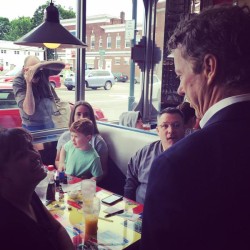 I don’t know whether the SEC was more obnoxious when they were full of themselves for winning championships, or when they whine when they don’t.
I don’t know whether the SEC was more obnoxious when they were full of themselves for winning championships, or when they whine when they don’t.
It has been making the news lately, and here’s an article on what makes Nebraska’s legislature different.
In the UK, Nick Cohen says Labour doesn’t realize why it lost, and in Alberta, people – such as myself – may be underestimating the NDP victory.
UAB Football program, terminated last year sparking a lot of anger, is coming back. It has a tough road ahead of it, and ifthis is true the university itself as it exists may be doomed.
Former Green Bay Packers and Texas A&M football coach Mike Sherman has taken a new job… at a Massachusetts high school.
St. Thomas University has a pitcher who weighs in at three-hundred pounds.
HBCUs are having a lot of trouble meeting NCAA academic requirements.
The Connecticut Huskies went 2-10 last year, with its only FBS-level victory against UCF. So what they did they do? They made UCF a rival and gave themselves a trophy. UCF is scratching its head, but UConn says that UCF’s permission is not necessary in the declaration of a rivalry. The two schools have played each other three times.
Friend of Hit Coffee Abel Keogh is quoted in this story about sex and the grieving widower.
Vice argues that the next president of FIFA should be… Mitt Romney, but Mark Thompson tweets explanations as to why that can’t happen.
The Cameron government wants to ban pleasure. Well, not quite, but they’re drafting some laws so broad that it’s hard to tell.
Will Wilkinson defends Rick Perry’s glasses. I still say Jeb Bush did a better job picking glasses out than Perry’s wife did.
Rick Perry is kicking off his presidential campaign with a BBQ. Though I hope not to be in a position to vote for Perry or Jindal, I might want to fly down and attend the latter’s kickoff if it includes a crawfish boil.
Robert Mann explains why Bobby Jindal is so unpopular, and Tunku Varadarajan explains his uncomfortable relationship with his race.
As a general advocate of school choice Nevada’s bill makes me nervous in the same way that some of the aggressive minimum wage increases should make advocates nervous.
Noah Smith has had it up to here with economists and pseudo-economists calling everything “signalling“:
Talk to economists, and you’ll find a large number who believe that college — that defining institution of America’s privileged youth — is mostly signaling. It makes sense, after all — don’t most people go to college because they think it will get them a job? And honestly, when was the last time you actually used any of the things you learned in college at your job?
Possibly the biggest promoter of the signaling theory of education is George Mason University’s Bryan Caplan. Caplan believes so passionately in the model that he’s writing a book about it, called “The Case Against Education.” He has already written enough blog posts on the topic to make a small book!
Caplan’s message is bound to appeal to people who dislike the institution of college, whether because they think it’s too politically leftist, or they’re worried about high tuition and student loans. But there are some big holes in the case. Caplan’s GMU colleague, Tyler Cowen, is rightfully skeptical of claims that college is mostly signaling. Let me add my voice to the skeptical chorus.
The piece isn’t just about college, and I’ll get to the rest later, but let’s start with college. He goes on to say:
Well… it depends. In theory, at least, going to work for 3-4 years may convey useful information about your work ethic… but will employers see it that way? More importantly, will the employers you want to work for see it that way? It depends on the job, I’m sure. I wouldn’t spent 3-4 years on a job you can get with only a high school diploma finding out, unless I could get the right job on the right track out of high school, which isn’t easy in large parts of the country.So is college a way to signal conscientiousness and willingness to work? Maybe. But an even better way to signal that would be to actually work at a job for four years. One would think that if young people needed to do some hard work to signal their work ethics, some companies would spring up that gave young people real productive work to do, and provided evidence of their performance. Instead of paying through the nose to send a signal of your industriousness, you could get paid. But we don’t see this happening.
When you think about it this way, the whole idea of college-as-signaling becomes a little absurd. People’s careers last for 35 to 45 years. But after you’ve been working for a while, prospective employers can look at your work history — they don’t need the college signal anymore. Caplan’s theory therefore is that many young people are spending four years — and lots of tuition money — on something that will only affect the very beginning of a career.
The problem with going straight into the workforce is that it can put you on a single track and it can be hard to get off that track. Unless you have somehow gotten a job where you’ve learned some useful work skills that employers want, I’m not sure “But I’ve shown up at McDonald’s every day for the last four years” is going to be that strong an argument. Now, maybe Smith would argue that’s proof that it’s value-added… but only if the employer is correct. More likely, the employer would just assume that you couldn’t go to college, are unambitious, or 100,000 other assumptions that don’t reflect well on you. They might just assume that you are the person who is meant to work at a job where you need to wear a funny hat. It’s a stages-of-life thing. Working at McDonald’s as a teenager might reflect well on you or might not, but working at McDonald’s past the stage where you’re supposed to be working at McDonald’s makes it look like you were held back a grade.
I didn’t realize how much I felt that employers felt this way until I moved to Deseret, where that was very conspicuously not the attitude. Some of it may be the big city vs small city distinction, but say what I will about Deseret and Mormons, they are people that seriously, seriously value a good work ethic. “You spent two years answering phones about cell phone service and were promoted to a vaguely supervisor job title? Wow, that’s great! You can probably learn XHTML! And completely not in a condescending way!” At best, the sense I got from Colosse is that at best you were biding your time. And why weren’t you going to college? A lot of this is really a collective action problem. By going to college, or not going to college, you’re putting yourself in a particular category with particular people. Which is sending a signal (whether in the way that economists are supposed to use the term or not).
I am not nearly as skeptical of college as Caplan is. I believe a lot of people really do get something out of it. I believe that I did. I believe that most people who spend their free time reading and commenting sites like Hit Coffee and Ordinary Times do. I also believe, as Smith goes on to mention, that there can be significant networking effects. Even at a non-stellar school like Southern Tech, you meet people. This is one of the reasons why for-profit universities so often have such terrible returns, and why which school you go to can matter a great deal at either the high end (Ivy Leagues!) or the lower end (bidirectionals, community colleges, or workbag schools).
Smith goes on to talk about other things, where the arguments range from particularly weak to particularly strong. Fashion? Yeah, a lot of fashion is signalling. Quite conscious and deliberate signalling at that. Leisure, though, is far less likely to be a signalling activity. Is its value embedded in other people knowing about it? Then signalling is probably involved. But if you don’t care what others think about it, then it’s probably not (or, at least, less so…).
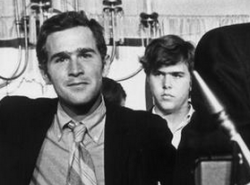 As it happens, if you charge users for their water, they use less.
As it happens, if you charge users for their water, they use less.
Australian researchers may have a breakthrough on Alzheimer’s.
Puerto Rico is losing its middle class, but gaining millionaires.
I’m not uniformly opposed to term limits, but the ones suggested here are too short. I’d be more open to 20 years in either house or 30 years total. (Senators would be able to complete their terms.)
Freddie deBoer looks at Purdue University’s newest pretty (and very empty) building, and contrasts it with important existing facilities, putting in a good word for cost-conscious alternatives. I’m personally a little bummed because I found out they’re tearing down the dorm I lived in for four years, and replacing it with more luxurious accommodations. They won’t be empty, at least.
To combat infanticide, China set up “safe havens” for abandonment (like we do with fire stations). Unfortunately, so many babies are being abandoned that they’re shutting them down.
Are investors getting in the way of traditional home-buyers?
I’m a tad skeptical of the plan of this DC developer to build “shared space housing.” You can think of it like dorms or retirement communities, but those places are narrowly selecting.
I… don’t even know how to feel about this: How would you like a perfume that smells like a dead loved one?
There’s water in that there valley, and oil in them there hills, in Antarctica.
Men and boys with older sisters are less competitive. I’ve long hoped that we have two kids with an older sister and a younger brother. It appears I am wise!
Michael Siegel points to an encouraging study on ecigarettes. So far the data has been surprising (to me) less encouraging than I had hoped, leaving me a bit dumbfounded. It worked for me and I want it to work for everyone. The public health community is doing what it can to make sure that it will help as few people as possible.
So what’s the deal with the medieval art with knights fighting snails? sdfsdf
The bad news is that judges, like the rest of us, are susceptible to motivated reasoning. The good news – which unlike the bad actually is news – is that they are less so.
A new study suggests that self-driving cars will be a boon to public safety. There are still a lot of things that the autocars cannot handle, however, and so it may be a while.
In the meantime, we’re likely looking at a future where cars take more and more off our hands and, piece by piece, do the driving for us. This could turn out to be a mixed bag, however, if we become too reliant on these vehicles too quickly. The fear is that risk compensation will cause more problems than the semi-automation will fix.
It’s something that makes a certain disconcerting sense to me. But it’s also something that’s not very new.
When I was young and she was alive, I used to get into arguments with my aunt on the subject of cruise control. She thought that cruise control was an absolutely horrible invention because it meant that drivers would pay less attention and therefore cause more accidents.
“What about automatic transmission?” I asked.
Completely different she explained, though she was never quite able to explain why automatic transmission made driving easier but cruise control made driving too easy. Why automatic transmission made it so that you could focus on your driving, while cruise control made it so that you wouldn’t. Maybe there is a good explanation, but I think a lot of it revolves around innovations that occur when you’re young enough to be interested in innovations.
Which is what I think about when I worry about drivers not paying sufficient attention to the road. I think cruise control is as awesome as my aunt thought automatic transmissions were, and I tend to chalk up my concern to automatic car distancing to her concerns about cruise control.
Then again, every innovation is different. And I do recall reading somewhere that Google actually had to step back on the automation because it’s drivers weren’t paying the attention that they needed to be taking. So maybe there’s something to it.
If you have any inclination towards country – or at least not allergic – here’s a guy named Terrell Nedrow playing a couple of songs by two great Oklahoma songwriters (Jason Boland and Brandon Jenkins):
Proud Souls is the ultimate “sittin’ alone and feelin’ sorry for yourself” song. If you want a more polished version, you can listen to the original Jason Boland version here, and Cross Canadian Ragweed has a version here.
Finger on the Trigger is another kind of downer of a song, written by Brandon Jenkins and recorded by him and Bleu Edmondson. Whereas Proud Souls is rather general – and applicable to whatever reason you find yourself feeling glum – Finger on the Trigger has more of a narrative. (Sadly, no YouTube for a studio version from Jenkins. Link goes to a performance.

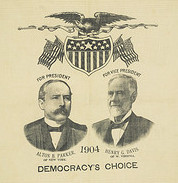
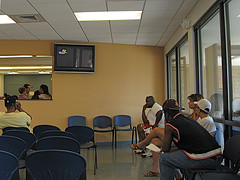

![[Car-Retarder Operator in Retarder Shack, Texas & Pacific Railway Company] by SMU Central University Libraries signal tower photo](http://hitcoffee.com/wp-content/uploads/2015/06/15694415443_18d9998c46_m_signal-tower1.jpg)